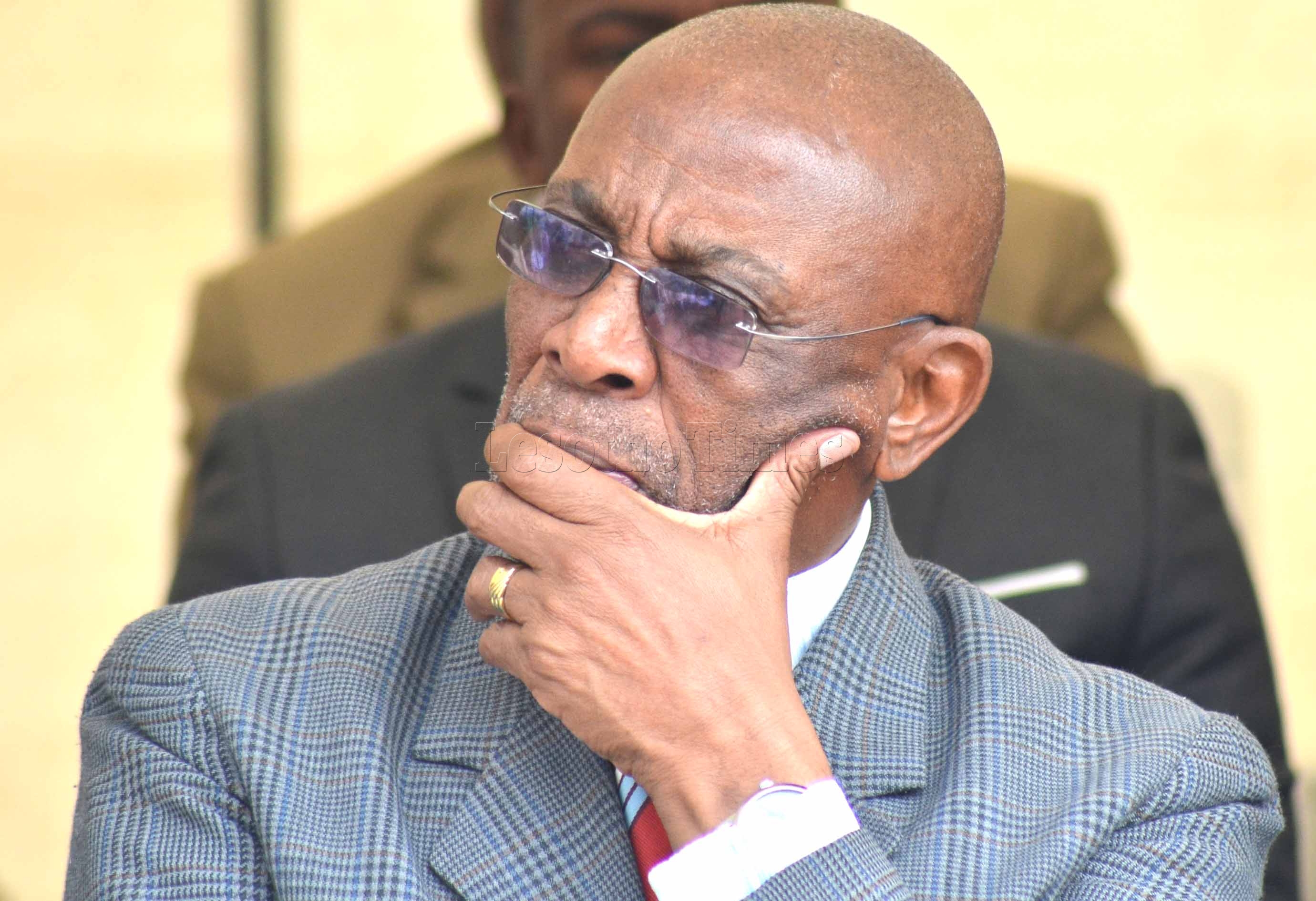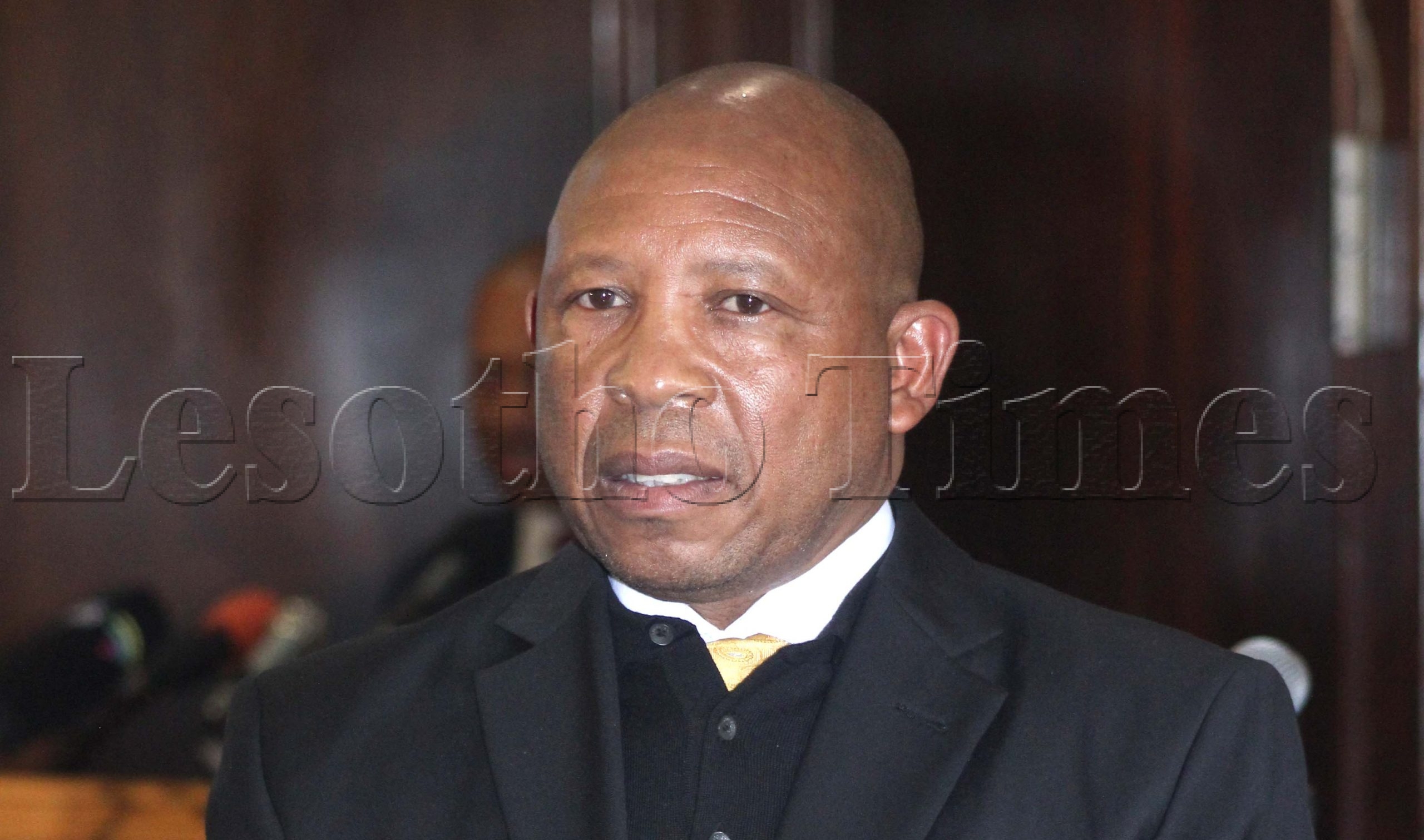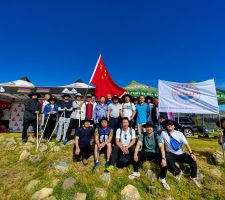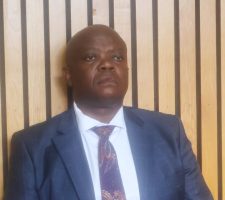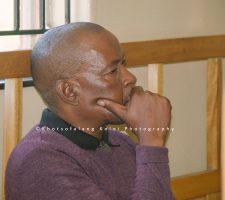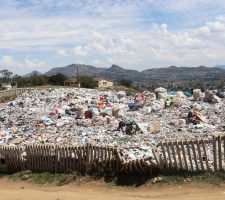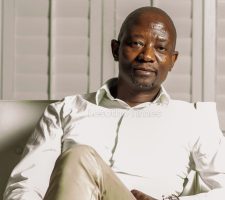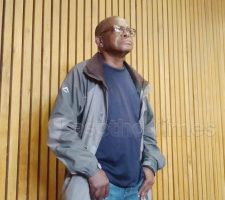
’Marafaele Mohloboli
IN a week of high drama, the Southern African Development Community (SADC) descended with a heavy hammer on Lesotho, issuing an unprecedented ultimatum for the government to publish the Phumaphi Commission report and implement its recommendations. But while agreeing to release the report within the ordered 14-day ultimatum, a defiant Prime Minister Pakalitha Mosisili said last night the Lesotho government would not be frog-marched into implementing all of the Commission’s recommendations as these were not legally binding.
Addressing journalists in the capital last night, Dr Mosisili emphasized that only court rulings were binding but never recommendations of commissions.
The premier said he would table the Phumaphi Commission report in Parliament within the 14-day deadline prescribed by SADC, but also warned that his government would edit out from the report any parts that threatened the country’s peace and security, if any are found, before making it public.
Dr Mosisili’s decision to accept the report at a SADC double troika summit in Gaborone this week was a major climb-down from his earlier stated position that he would never accept the Phumaphi Commission report before the conclusion of a court case in which Lesotho Defence Force (LDF) Lieutenant-Colonel Tefo Hashatsi is seeking to nullify the entire Phumaphi commission and its findings.
An equally defiant SADC stated in an unusually frank communique at the end of its double troika summit in Gaborone this week that it was not bound by the Hashatsi court case declaring that, “any court decision taken against the Commission of Inquiry is of no legal effect and will not bind SADC and its institutions”.
The double troika summit comprising of Botswana, Mozambique, South Africa, Swaziland, Tanzania and Zimbabwe, said SADC enjoyed immunity from any court actions in terms of the SADC Treaty and the SADC Protocol on Immunities and Privileges.
South African President Jacob Zuma went even further telling the South African Broadcasting Corporation (SABC)’s Morning Live programme on Tuesday that SADC would unilaterally release the report to the public if Dr Mosisili refused to accept it. Mr Zuma further said the troika would proceed to suspend all its mediation activities in Lesotho in addition to recommending to a fuller SADC summit Lesotho’s complete suspension from the regional body.
It is this tough stance by the double troika that is seen as having coaxed Dr Mosisili’s climb-down to accept the report he had vowed never to receive until the finalization of Lt-Col Hashatsi’s court case.
Both President Zuma’s remarks and the strongly worded communique of the double troika, marked a fundamental shift of policy against a member state by the usually timid and supine SADC which has stood by as a disinterested spectator as Robert Mugabe has destroyed his once prosperous Zimbabwe through a combination of mass murder, routine electoral theft and economic pillaging.
Prime Minister Mosisili was nonetheless unimpressed by Mr Zuma’s unprecedented anti-Lesotho remarks and yesterday accused the South African president of employing double-standards.
He said Mr Zuma had written to the International Criminal Court (ICC) to dissuade it from holding South Africa accountable for its failure to arrest Sudanese President Omar Al Bashir while he was in Johannesburg as ordered by a South African court. Yet Mr Zuma was quick to reprimand Lesotho when its government was merely seeking to respect its court processes vis–à–vis the demands of an international forum.
“This is the same thing that today they (South Africa) are claiming immunity by saying that ICC should hold their horses in this regard (holding SA accountable over the Bashir case), and yet you (Mr Zuma) maintain that it’s wrong when we say a regional bloc should hold their horses since we still have a case in court. How are these two scenarios different?” asked Dr Mosisili rhetorically.
“Why is it right when you say the ICC, an international organization should hold its horses and yet it’s wrong when we (Lesotho) say a regional organization should hold its horses on the same basis? The principle is the same Mr President. What is good for the goose is good for the gander.
“It is surprising that a bloc that believes in democracy and rule of law (SADC) can say that courts’ decisions are not binding to the extent of writing it down in black and white. This is a blunder! I said to them, if the courts of Lesotho do not mean anything to you, they mean everything to us.”
It seems more worryingly for the immediate future relations between SADC and Lesotho is Dr Mosisili’s insistence that any recommendations of the Phumaphi Commission are not binding and the government would effectively cherry pick those that it wanted to implement.
The double troika said unequivocally in its communique that it had “received and endorsed the report of the Commission of Inquiry and urged the government of the Kingdom of Lesotho to implement its recommendations”.
Some analysts insist that this means the Lesotho government must implement the entirety of the recommendations but Dr Mosisili said this was not the case.
“There is this hullabaloo that I’m hearing, that the recommendations are binding. That’s a contradiction. The only thing that’s binding is the ruling of the courts. Recommendations will never be binding, unless the word recommendation means something else in Lesotho,” said a defiant Dr Mosisili.
He said his government would study the Phumaphi Commission report and only implement those recommendations “that can be implemented”.
Those who claim to have knowledge of the Phumaphi Commission report say central to its report is its condemnation of the reinstatement of Lieutenant-General Tlali Kamoli to the command of the LDF as the main source of the problems in Lesotho and its recommendation that he be removed from that post to facilitate national reconciliation. If that is the case, this may turn out to be one of the main bones of contention as the Lesotho government has been steadfast in standing by Lt-Gen Kamoli.
Dr Mosisili also warned that should the Attorney-General advice that parts of the report would put the country’s peace and security at stake, his government would not hesitate to remove any such parts from the final report.
“In the unlikely event that the AG may advice that some parts of the report should not be published as they put the state’s security at risk, we will not hesitate to expunge those recommendations and I so pray that that won’t happen.”
Dr Mosisili said the government would also seek legal opinion on the report. He was confident that it would implement the recommendations that were amenable to be implemented expeditiously and report to SADC in due course as ordered in the communique.
Explaining why he had finally decided to accept the Phumaphi Commission report after his earlier stance never to do so pending the conclusion of the Hashatsi court case, Dr Mosisili said he had made the U-turn in the spirit of compromise and to meet the regional body half way.
“The only reason why we accepted the report was so as to compromise and meet one another halfway since SADC was starting to feel uncomfortable that the report had taken way too long in their hands after Phumaphi had handed it over, without passing it on to their rightful owners (the Lesotho government).
“I only accepted the report so as to compromise, we were trying to meet SADC halfway because they were complaining that the report had been in their hands for way too long such that they (SADC) were even tempted to publish it themselves, which we told them would be wrong and premature.”
Dr Mosisili urged opposition parties to end their boycott of Parliament and be present when the report is tabled.
“It is my unshaken believe that all parliamentarians including the opposition will show up in parliament to hear this report first hand, without it being interpreted by others.”
However he also made it very clear that should the opposition leaders and MPs persist with their boycott, then “that will be their loss.”
He urged opposition party leaders in exile to come back home to “take part in this auspicious exercise,” insisting that there was no basis for their continued living in exile.
All Basotho Convention leader, Thomas Thabane, Basotho National Party (BNP) leader Thesele Maseribane and Reformed Congress of Lesotho (RCL)’s Keketso Rantso, fled to South Africa last May alleging the LDF masterminded plots to kill them.
But Dr Mosisili said there was no basis to their claims. He said “there is no tangible evidence that proves that these opposition leaders’ lives are in danger.”
The premier said he had personally made several attempts, especially with Dr Thabane, to urge the opposition leaders to come back home but all in vain.
Dr Thabane has since stated that he will not return as long as Lt-Gen Kamoli remains LDF commander.
SADC appointed Justice Mpaphi Phumaphi of Botswana last July to lead a 10-member team of legal and security experts in the probe which was held between 31 August and 23 October 2015. The inquiry, which also investigated the killing of former Lesotho Defence Force commander Maaparankoe Mahao by his army colleagues, submitted its findings to the regional bloc last month.




